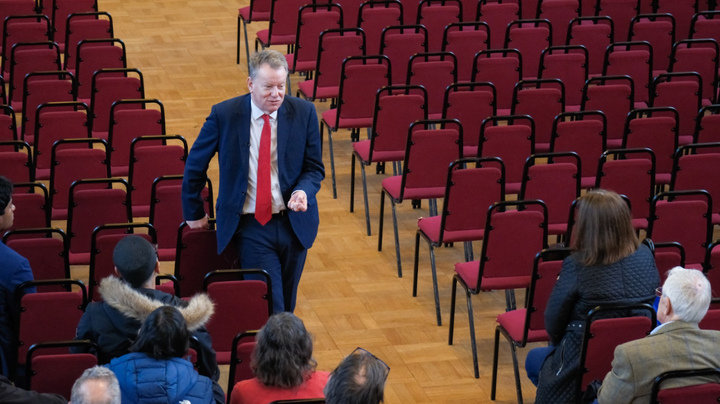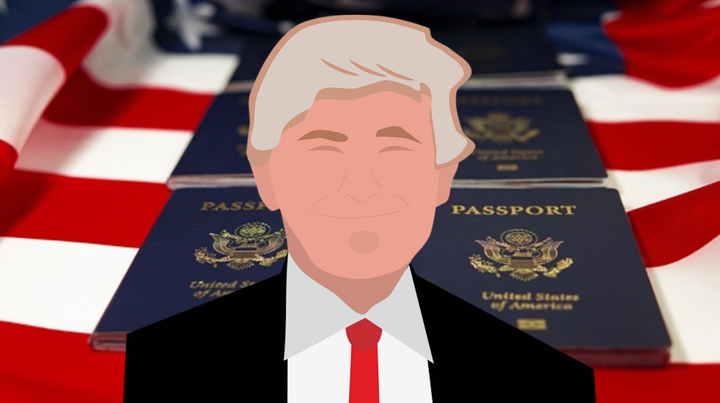Can AI Predict the Stock Market?

Taran Sabarinathan
Imagine a computer so smart it could tell you which shares to buy, when to sell them, and how to make money in your sleep. Sounds like something from a sci-fi film, right? Yet this is exactly what some people hope artificial intelligence (AI) can do — predict the stock market.
But how realistic is this idea? Can machines really outthink the market and help investors get rich? Let’s break it down.
The Dream: Letting Machines Do the Investing
AI has taken the world by storm, from writing essays and generating images to diagnosing illnesses. In the world of finance, it’s being used in a field called machine learning, where computers analyse huge amounts of data to find patterns and make predictions.
Investors, especially at major hedge funds and trading firms, use AI to try and predict where markets might go. These systems can scan millions of data points, such as share prices, earnings reports, news headlines, and even social media posts, all in seconds. The idea is that if a machine can “learn” how markets have moved in the past, it might be able to guess what will happen next.
And it’s not just billion-pound firms doing this. Even some student investors are experimenting with AI trading tools. Apps and platforms like QuantConnect or TradingView are making it easier than ever for individuals to test simple AI models themselves.
Real-World Success Stories (and Some Failures)
There are definitely some real examples of AI being used to invest. Major firms like JPMorgan and BlackRock are using AI to help make decisions. One hedge fund, Renaissance Technologies, is famous for using complex algorithms (a fancy word for step-by-step problem-solving rules) to make billions of dollars.
There are also AI bots that read social media to figure out how people feel about certain shares. This became a big deal during the GameStop craze in 2021, where Reddit users helped push up the price of a “meme stock” just by talking about it online. Some AI models now scan platforms like Reddit and X to track investor emotions, and trade based on the mood.
But while AI has had some wins, it’s not magic. Some models that look great in testing fall apart in real-life trading. Just because a pattern existed in the past doesn’t mean it will happen again, especially when human behaviour is so unpredictable.
So, What’s the Catch?
There are several reasons why AI can’t fully predict the market, at least not yet.
Too Much Noise
The stock market is chaotic. Prices change every second based on news, emotion, and random events. AI might pick up on patterns that are just coincidences. If you train a model on this kind of messy data, it might make decisions based on “noise” rather than genuine insights.
Overfitting
This is a common problem in machine learning. Imagine teaching an AI to recognise cats by showing it 1,000 pictures, but all the cats are orange. The AI might think that orange fur is a key feature of all cats. In finance, an overfitted model may work perfectly in a test, but fall apart when it sees new data in the real world.
Black Box Problem
Some AI models are so complex that even the people who build them don’t fully understand how they work. That’s a big issue in finance, where you need to know why something is happening, especially if you’re managing other people’s money.
Markets Are Efficient (Sort Of)
According to the “Efficient Market Hypothesis”, all known information is already reflected in share prices. If this is true, it would be almost impossible, even for AI, to consistently “beat the market” just by using public data.
Humans and Machines: Better Together?
Instead of thinking of AI as replacing human investors, some people believe it works best as a partner. AI can handle the number-crunching, analyse thousands of shares in seconds, and detect early signs of change. But humans still have the edge in areas like creativity, common sense, and understanding the bigger picture.
This is called a “hybrid approach”, where humans and machines work as a team. It’s already happening in many top investment firms.
What the Future Could Look Like
AI is only going to become more powerful, and it will almost certainly play a greater role in the world of finance. In the future, we could see personalised investing tools that customise a portfolio to suit an individual's exact goals, risk tolerance, and lifestyle. Real-time market analysis might also become more advanced, drawing not just from traditional data sources but from news articles, video content, and even spoken language to identify trends as they emerge. Additionally, AI could offer improved risk management systems that help investors spot potential threats earlier and avoid significant losses.
While it’s unlikely that AI will ever be able to predict the stock market with perfect accuracy, it still holds the potential to make investing smarter, faster, and more accessible for everyone.
Final Thoughts
AI is not a crystal ball. It won’t guarantee riches, and it still makes plenty of mistakes. But it is changing the way people invest, from the billionaire firms in Canary Wharf to student-led trading clubs.
For young people curious about finance and technology, learning how AI works, and where it can fail, could be one of the smartest investments you’ll ever make.




Comments ()